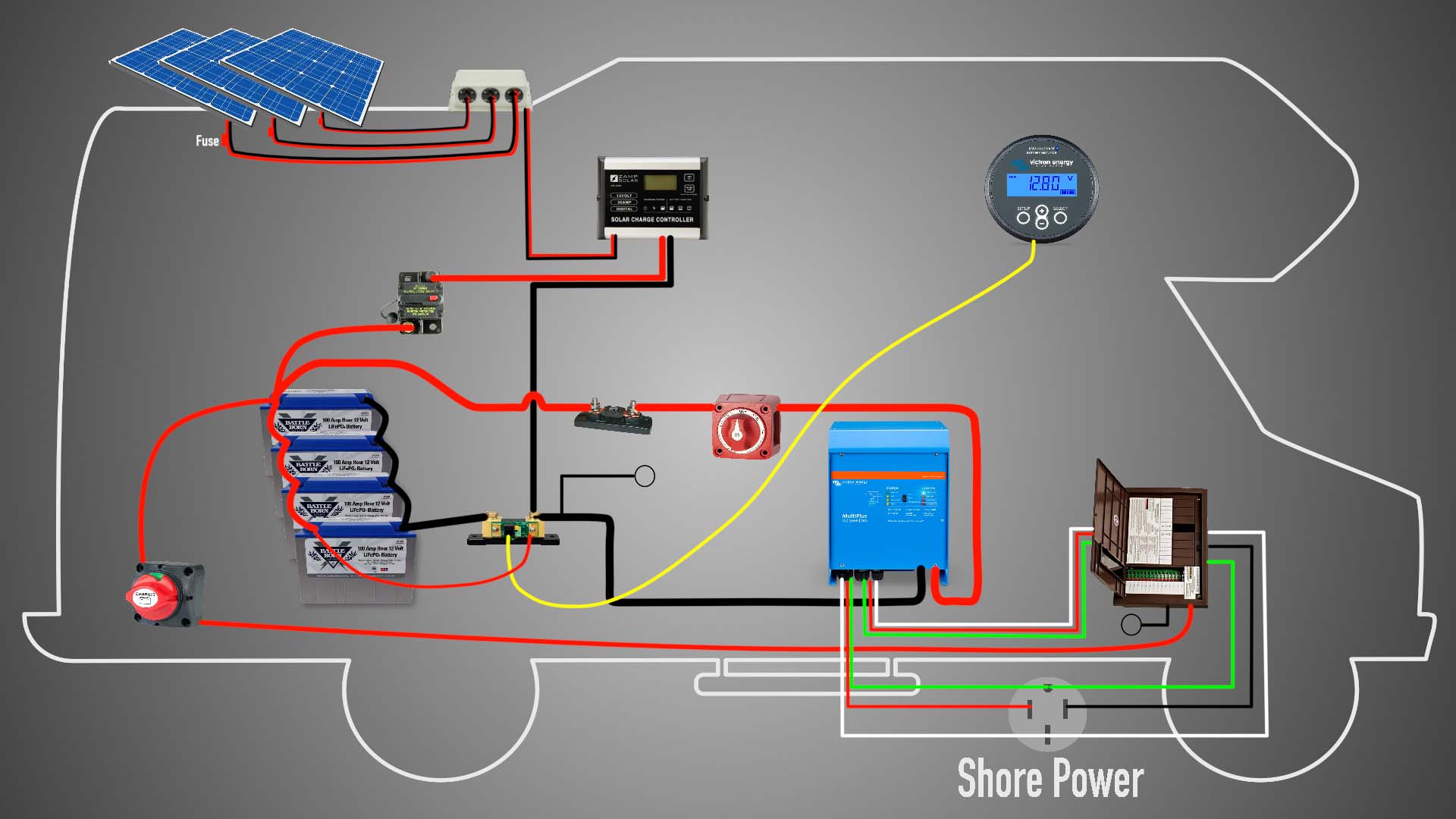“Solar panel installation wiring with battery backup”
Introduction to Solar Panel Installation Wiring
Before we dive into the specifics of wiring with battery backup, it’s essential to understand the basics of solar panel installation wiring. A typical solar panel installation consists of several key components, including:
- Solar Panels: These are the photovoltaic (PV) panels that convert sunlight into electrical energy.
- Mounting System: This includes the racking and mounting hardware that secures the solar panels to the roof or ground.
- Inverter: This device converts the DC power generated by the solar panels into AC power, which is usable in homes and businesses.
- Electrical Panel: This is the main electrical panel that distributes power to the various components of the system.
- Wiring: This refers to the electrical wiring that connects the solar panels, inverter, and electrical panel.
Battery Backup Systems

A battery backup system is a critical component of a solar panel installation, as it allows for energy storage and backup power during periods of low sunlight or grid outages. A typical battery backup system consists of:
- Deep Cycle Batteries: These are specialized batteries designed to store energy generated by the solar panels.
- Charge Controller: This device regulates the flow of energy between the solar panels and the batteries.
- Inverter/Charger: This device converts the DC power from the batteries into AC power, and also charges the batteries from the grid or solar panels.

Wiring Considerations for Battery Backup Systems
When it comes to wiring a solar panel installation with battery backup, there are several key considerations to keep in mind:
- System Sizing: The wiring system must be sized to handle the maximum amount of energy generated by the solar panels and stored in the batteries.
- Voltage and Current: The wiring system must be designed to handle the voltage and current requirements of the system, including the maximum power point tracking (MPPT) voltage of the charge controller.
- Cable Sizing: The cables used for wiring must be sized to handle the maximum amount of current flowing through the system.
- Grounding and Bonding: The system must be properly grounded and bonded to ensure safe and efficient operation.
- Overcurrent Protection: The system must include overcurrent protection devices (OCPDs) to prevent damage from excessive current flow.

Components of a Solar Panel Installation Wiring System
A solar panel installation wiring system with battery backup consists of several key components, including:
- Solar Panel Connectors: These are the connectors that attach to the solar panels and connect to the wiring system.
- Inverter Output Cables: These cables connect the inverter to the electrical panel.
- Battery Interconnect Cables: These cables connect the batteries to the charge controller and inverter/charger.
- Charge Controller Cables: These cables connect the charge controller to the solar panels and batteries.
- Grounding and Bonding Cables: These cables connect the system to the grounding and bonding points.
- Overcurrent Protection Devices (OCPDs): These devices protect the system from excessive current flow.
Best Practices for Solar Panel Installation Wiring
To ensure a safe and efficient solar panel installation wiring system, follow these best practices:
- Hire a Licensed Electrician: A licensed electrician with experience in solar panel installations should be hired to perform the wiring.
- Use High-Quality Components: Use high-quality components, including cables, connectors, and OCPDs, to ensure safe and efficient operation.
- Follow Manufacturer Instructions: Follow the manufacturer instructions for all components, including solar panels, inverters, charge controllers, and batteries.
- Test the System: Thoroughly test the system before energizing it to ensure safe and efficient operation.
- Perform Regular Maintenance: Perform regular maintenance on the system to ensure it continues to operate safely and efficiently.
Code Requirements and Compliance
Solar panel installations must comply with local and national electrical codes, including the National Electric Code (NEC) in the United States. Some key code requirements and considerations include:
- NEC Article 690: This article covers the requirements for solar panel installations, including wiring, grounding, and bonding.
- NEC Article 705: This article covers the requirements for battery backup systems, including wiring, grounding, and bonding.
- Local Building Codes: Check with local building codes and regulations for specific requirements and restrictions.
Conclusion
Solar panel installation wiring with battery backup is a complex and critical component of a solar panel installation. By understanding the key considerations, components, and best practices outlined in this article, homeowners and businesses can ensure a safe and efficient solar panel installation that meets their energy needs. Remember to hire a licensed electrician, use high-quality components, and follow manufacturer instructions to ensure a successful installation. With the right knowledge and expertise, solar panel installations can provide a reliable and renewable source of energy for years to come.





